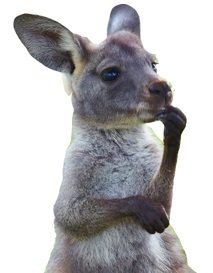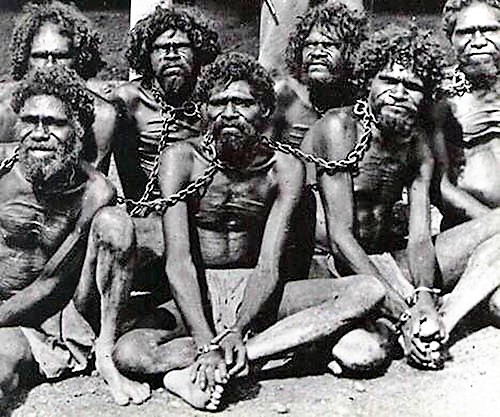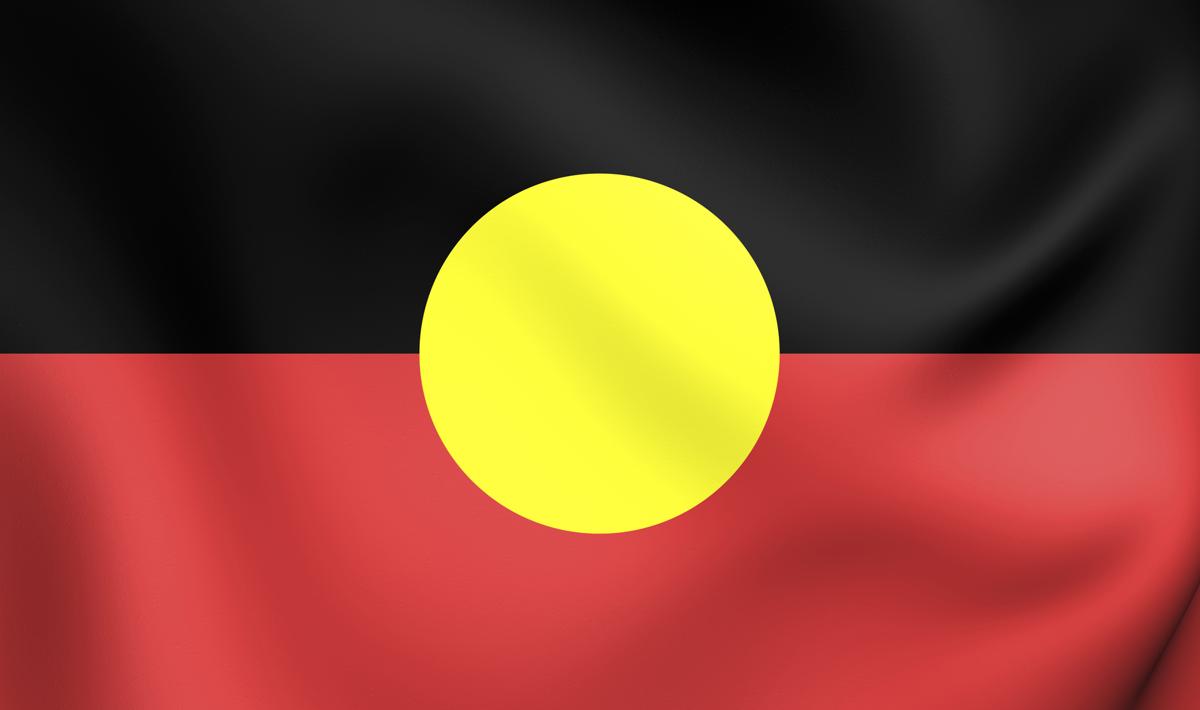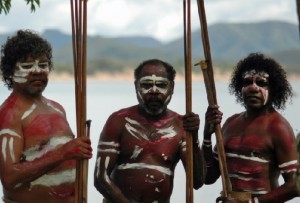
Modern Japanese is filled with examples of borrowed words from foreign languages, which are known as gairaigo. “G’day” is probably widely known throughout Japan as a symbol of Australian English, but there are some even more uniquely Australian words that have also made their way into Japanese.
現代の日本語は、外国語を由来とする、いわゆる外来語が多く、オージー英語から来ている言葉もその例外ではない。日本では「グッダイ」が、オージー英語の典型的な例としてよくあげられるが、実際に日常生活の中でもオーストラリア先住民語が使われているという事実がある。
Prime among those words is kangaroo, Australia’s national animal. An old myth is that kangaroo was the Guugu Yimithirr Indigenous Australian tribe’s term for “I don’t understand,” after Capt. James Cook had asked a tribe member the name of the mysterious animal with the pouch while in Australia in 1770. But kangaroo actually derives from the Guugu Yimithirr word gungurru.
まず、日本で使われている豪州先住民語を由来とする代表的な言葉は、オーストラリアの象徴的な動物の名前「カンガルー」だろう。1770年にオーストラリアを訪れたたジェームス・クック船長が、袋がある不思議な動物の名前を先住民のグーグ・イミディル族の人に尋ねたところ、イミディル語で「分からない」と答えたという話がある。この経緯はあくまでも伝聞にしかすぎないが、「カンガルー」の由来はグーグ・イミディル語の「グングルー(gunguruu)」だ。
Wallaby, the kangaroo’s shorter, stouter relative, comes from woraba in the Dharug language spoken by Indigenous Australians living in the area that is now Sydney. Rumors that wallaby was used for the name of Warabi, a city in Saitama Prefecture, are totally unfounded.
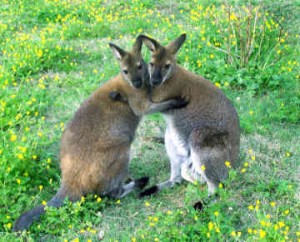
Koala is another Dharug word to enter Japanese and means “one who doesn’t drink.” Koalas survive entirely on a diet of eucalyptus leaves and never need to consume water.
コアラも「飲まないもの」を意味するダルッグ語が由来だ。コアラが口にするのはユーカリの葉っぱのみ。生きるために水を飲む必要がない。
Finally, there’s another Indigenous Australia word of unknown origin in Japanese that keeps coming back – literally: boomerang, which of course refers to the weapon and tool, of which some versions return to the thrower after being hurled into the sky and is a uniquely Indigenous Australian gift to the world. Incidentally, Japanese astronaut Takao Doi confirmed in 2008 that boomerangs return in the weightlessness of space, just as they do on earth.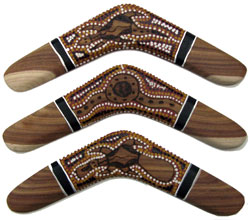
最後にもうひつ、語源は不明な豪州原住民語だが日本で使われ、いくらそれをなくそうと思っても必ず手元に帰ってくる、という言葉がある。それがブーメランだ。(言葉をなくそうという動きがあるわけではないがギャグのために、そのように表現した。失礼!)。先住民は、数種類のブーメランを武器や狩猟用の道具として使用した。その一部のブーメランが投げ方により投げた人のところに戻ってくる。先住民が世界中に贈ったユニークなものだ。ちなみに、2008年3月に日本人宇宙飛行士土井 隆雄氏は、無重力の宇宙環境の中でもブーメランを投げれば戻ってくることを確認した。
注意: 日英豪問わず、オーストラリア先住民をアボリジニと呼ぶことがほとんどだ。しかし、アボリジニには「土人」という意味があり、確かに未だに広く使われ、聞き馴染みがあるかも知れませんが、豊かな文化や伝統を持つ先住民に対して差別的な意味合いがあるので、考えRoo.comでは使いません。
